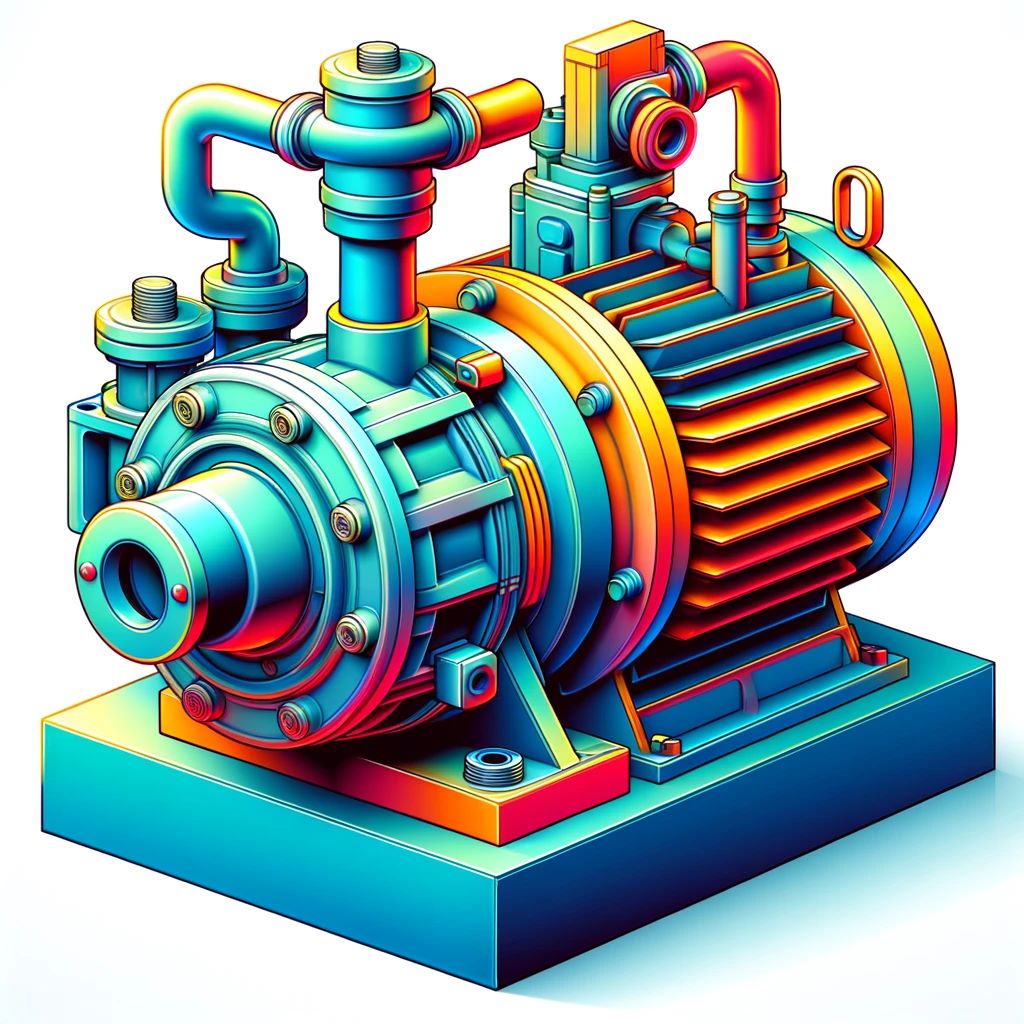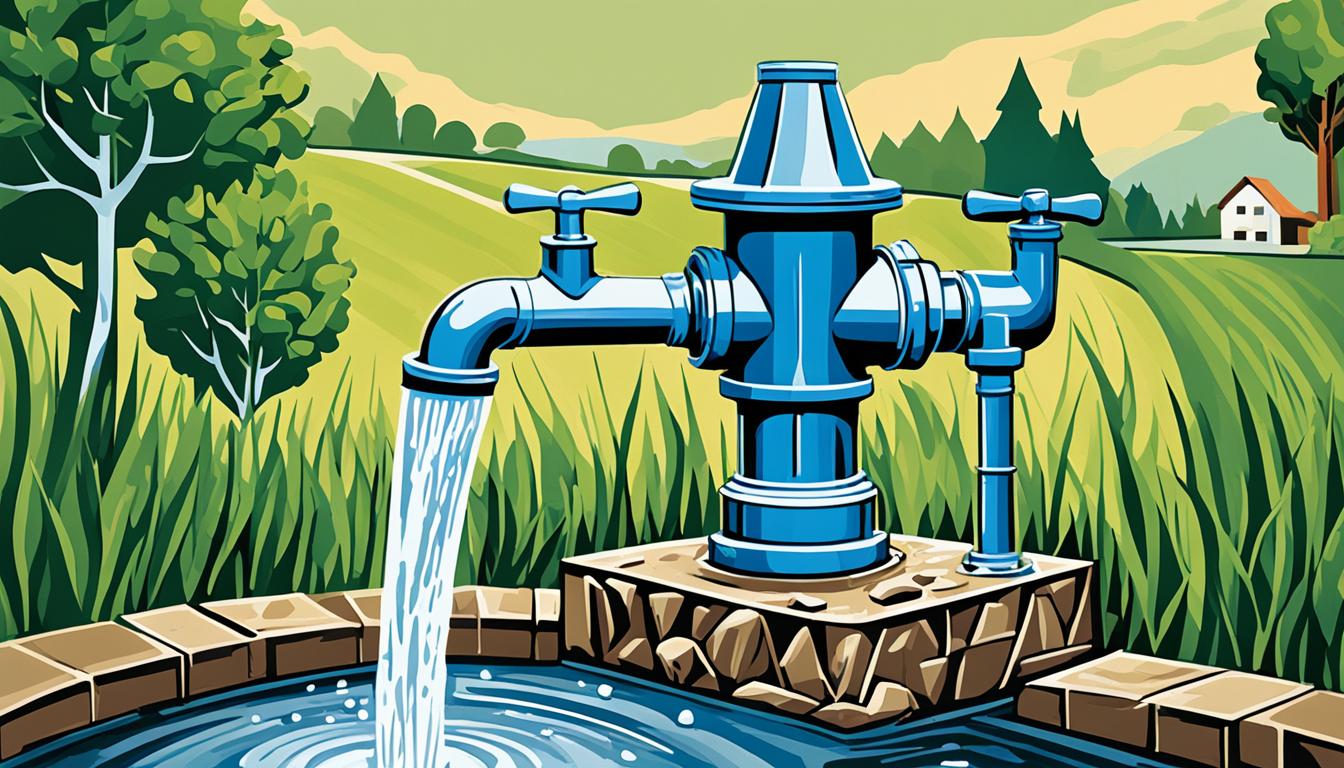This post contains affiliate links.
Did you know that the average cost to replace or install a new well pump is typically between $1,000 and $2,750? That’s right, homeowners can expect to spend an average of about $1,750 for a well pump replacement. The cost can vary depending on various factors such as the type of pump, the size and depth of the well, and the location.
When it comes to well pump replacement, it’s important to understand the costs involved and make informed decisions. In this article, we will dive into the factors that affect well pump replacement costs, the different types of well pumps and their costs, signs that indicate you need a replacement, and the benefits of hiring a professional for the job. By the end, you’ll have a clear understanding of the cost considerations and be better prepared for your well pump replacement project.
Key Takeaways:
- The average cost of well pump replacement is around $1,750.
- Factors influencing the cost include the type of pump, well size and depth, and any necessary repairs.
- There are various types of well pumps available, ranging in cost from $150 to $21,000.
- Signs that indicate the need for a well pump replacement include dirty water, inconsistent pressure, and loud noises.
- Hiring a professional for well pump replacement ensures proper installation and optimal functionality.
Factors Affecting Well Pump Replacement Costs
The cost of replacing a well pump can be influenced by several factors. It is essential to consider these factors when estimating the cost of well pump replacement.
Well Size and Depth
The size and depth of the well play a significant role in determining the complexity of the installation process and, consequently, the overall cost. Deeper and larger wells may require more extensive work and specialized equipment, which can increase the installation cost.
Type of Pump
The type of pump chosen for the replacement can also impact the cost. Submersible pumps, which are installed below ground, are generally more expensive than jet pumps that sit above ground. The cost can further vary depending on the specific type of pump, such as solar or constant pressure pumps.
Repairs and Replacements
Additional repairs or replacements of pressure tanks or pipework can increase the overall cost of the project. It is important to assess the condition of the existing infrastructure and factor in any necessary repairs or replacements when estimating the overall cost of well pump replacement.
By considering these factors, you can get a more accurate estimate of the well pump installation cost. Consulting with a professional can help assess these factors and provide a comprehensive estimate tailored to your specific situation.
Types of Well Pumps and Their Costs
When it comes to well pumps, there are several options available, each with its own cost range. The type of pump you choose will depend on factors such as the depth of your well, your water volume needs, and your budget.
Submersible Pumps
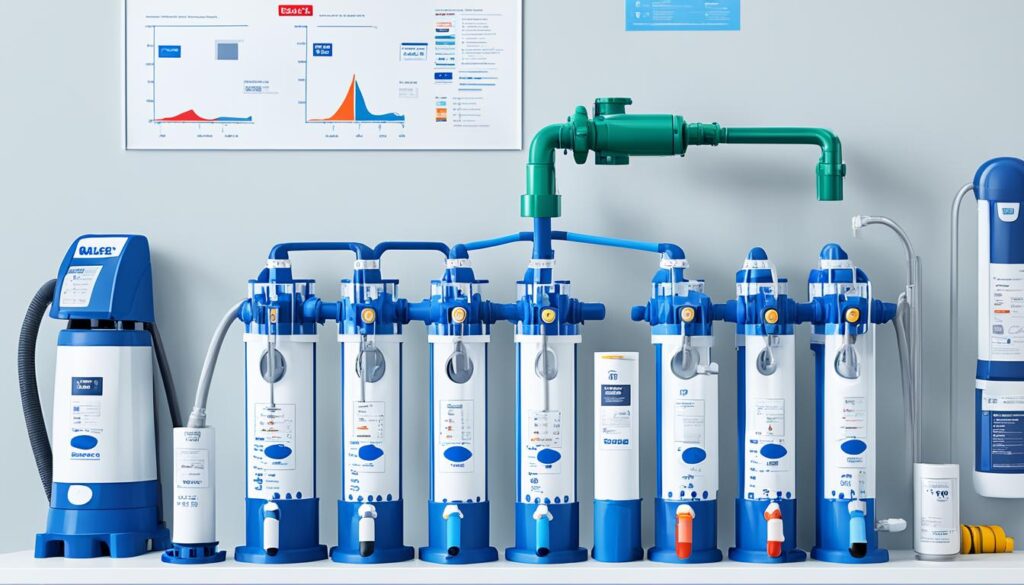
Submersible pumps are typically the more expensive option, with prices ranging between $275 and $1,550. These pumps are installed deep within the well and are designed to push water up to the surface. They are known for their durability and ability to handle high volumes of water.
Hand Pumps
On the more affordable end of the spectrum, hand pumps range from $150 to $1,500. These pumps are manually operated and are a suitable choice for wells with shallow water levels or as a backup option. While they require physical effort to operate, they can be a reliable and cost-effective solution.
Jet Pumps

Jet pumps, including shallow jet pumps and deep well jet pumps, fall within the price range of $230 to $1,200. These pumps work by pulling water up from the well using suction and are more commonly used for shallower wells. They are versatile and can be a good choice for moderate water volume needs.
Other Types of Pumps
There are other types of well pumps available, including solar pumps, constant-pressure pumps, and windmill water pumps. These options have higher costs, ranging from $1,800 to $21,000, but offer unique benefits such as energy efficiency or suitability for off-grid locations. The specific type of pump you choose will depend on your specific requirements and the characteristics of your well.
Factors Affecting Well Pump Replacement Costs
When it comes to replacing a well pump, several factors can influence the overall cost. It’s important to consider these factors to accurately estimate the expenses involved in the project.
Size and Depth of the Well
One of the primary factors that can impact the cost of well pump replacement is the size and depth of the well. The larger and deeper the well, the more complex the installation process may be. This complexity can contribute to higher installation costs as additional equipment and labor may be required.
Type of Pump Chosen
The type of pump selected for replacement can also affect the overall cost. Different types of pumps come with varying price ranges. Submersible pumps, for example, are typically more expensive compared to hand pumps. Other pump options, such as jet pumps, solar pumps, and constant pressure pumps, also have different price ranges. It’s essential to consider the specific needs of your well system and select a pump that suits both your budget and requirements.
Repairs and Replacements
In some cases, the cost of well pump replacement may include necessary repairs or replacements of pressure tanks or pipework. These additional repairs can contribute to an increase in the overall project cost. It’s important to assess the condition of these components and factor in any repair or replacement costs when estimating the cost of well pump replacement.
| Factor | Impact on Cost |
|---|---|
| Size and Depth of the Well | Higher costs for larger and deeper wells |
| Type of Pump Chosen | Varied costs depending on the chosen pump type |
| Repairs and Replacements | Potentially increased costs for necessary repairs or replacements |
Considering these factors and obtaining estimates from professionals can help you accurately estimate the cost of well pump replacement. It’s essential to work with a trusted well pump contractor to ensure a smooth and cost-effective installation process.
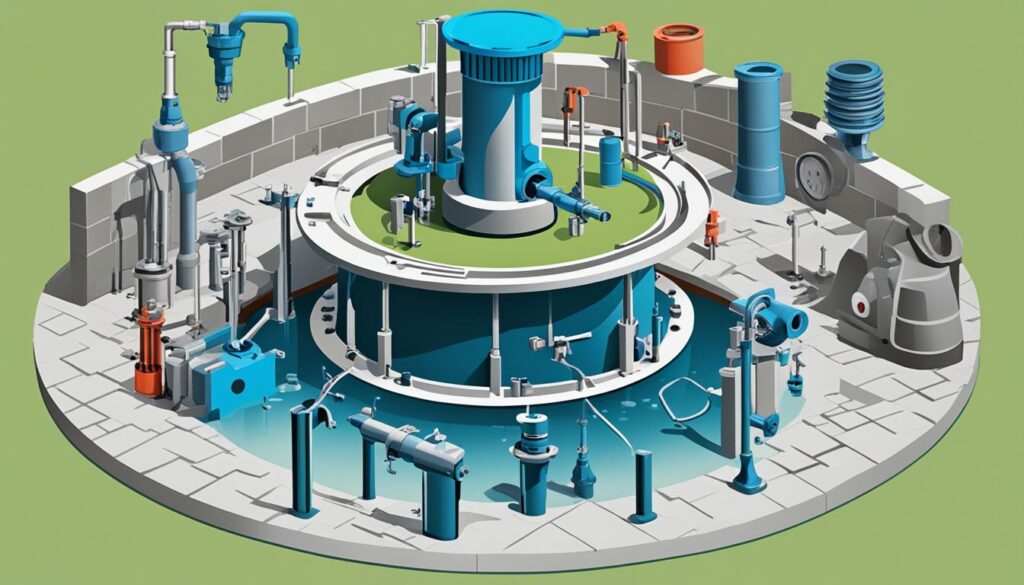
Signs You Need a Well Pump Replacement
If you’re experiencing issues with your well pump, it may be time to consider a replacement. Here are some common signs that indicate the need for a new well pump:
- Dirty water: If you notice that your well water is discolored or has a strong odor, it could be a sign that your well pump is failing.
- Inconsistent pressure: Fluctuating water pressure, such as sudden drops or surges, can be a sign of a failing well pump.
- Air in faucets: If you’re experiencing air spurting out of your faucets or sputtering water, it may be due to a faulty well pump.
- Loud noises: Unusual noises coming from your well pump or water system, such as grinding or rattling sounds, could indicate a problem that requires a replacement.
- Sudden increase in electricity bills: If your electricity bills have unexpectedly skyrocketed, it could be a result of an inefficient well pump that needs to be replaced.
- Decreased water flow: If you’re noticing a significant decrease in water flow from your faucets or showerheads, it may be due to a failing well pump.
If you’re experiencing any of these signs, it’s crucial to contact a professional to assess the situation and determine whether a well pump replacement is necessary. Ignoring these signs can lead to more extensive damage and higher costs in the long run.
“Recognizing the signs of a failing well pump early on can help prevent further damage to your water system and save you from costly repairs.”
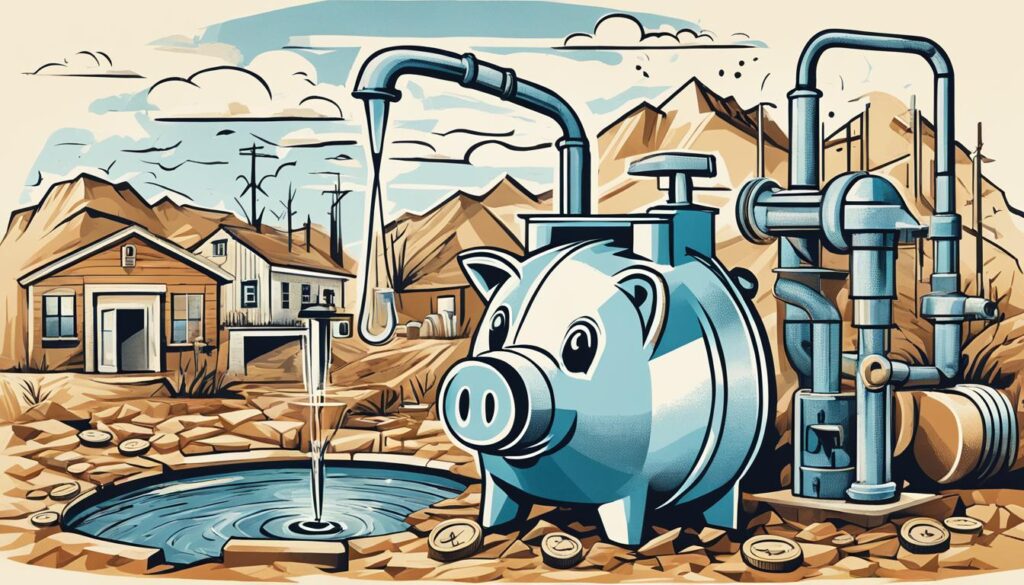
By addressing the signs promptly, you can avoid disruptions in your water supply and ensure the continued functionality of your well system. In the next section, we will discuss the importance of hiring a professional for well pump replacement.
Hiring a Professional for Well Pump Replacement
While some well pump replacements can be done by homeowners, it is generally recommended to hire a professional for this task. A professional well pump contractor can accurately diagnose the issue, recommend the appropriate pump for your needs, and ensure proper installation. The cost of hiring a professional for well pump replacement can vary depending on factors such as the complexity of the project, the location, and the contractor’s rates. It is important to obtain estimates from multiple contractors to compare costs and choose the best option.
When it comes to replacing a well pump, expertise and experience matter. Hiring a professional ensures that the job is done correctly, saving you time, money, and potential headaches. Professional contractors possess the necessary knowledge, skills, and tools to handle the complexities of well pump replacement.
“A well pump replacement is a specialized task that requires professional expertise. Hiring a professional ensures the job is done right the first time, giving you peace of mind and optimal performance of your well system.”
When hiring a professional for well pump replacement, consider the following factors:
- Experience and qualifications: Choose a contractor with a proven track record and appropriate certifications in well pump installation and repair.
- Reputation and reviews: Look for contractors with positive reviews and testimonials from satisfied customers.
- Estimates and pricing: Obtain detailed estimates from multiple contractors to compare costs and make an informed decision.
- Guarantees and warranties: Inquire about warranties on the pump and workmanship to ensure long-term protection.
By hiring a professional, you can have confidence in the quality of work and the longevity of your well pump replacement. It’s a worthwhile investment that will ensure the efficient and reliable functioning of your water system for years to come.
Remember, the cost of hiring a professional for well pump replacement may vary based on several factors. The complexity of the project, the location, and the contractor’s rates can all influence the overall cost. It’s essential to discuss these factors upfront and obtain detailed cost estimates to make an informed decision.
Well Pump Lifespan and Maintenance
The lifespan of a well pump can vary depending on maintenance practices and the type of pump. On average, a well pump can last between eight to fifteen years. However, with proper maintenance, you can extend its lifespan and avoid costly repairs or replacements.
To ensure the longevity of your well pump, it is essential to conduct regular inspections and address any issues promptly. Monitoring the water quality is also crucial in identifying potential problems early on. By taking proactive measures, you can prevent damage and prolong the lifespan of your well pump.
Consulting with a professional for regular maintenance is highly recommended. They can provide expert guidance, perform necessary servicing, and help you adhere to manufacturer guidelines for maintenance tasks. Regular maintenance by a professional can significantly contribute to the long-term performance and efficiency of your well pump.
Benefits of Regular Maintenance:
- Extends the lifespan of the well pump
- Prevents costly repairs and replacements
- Maintains optimal performance and efficiency
- Identifies and addresses issues early on
- Ensures water quality and safety
Proper maintenance and timely repairs are key to maximizing the lifespan of your well pump. Investing in regular maintenance can save you money in the long run by preventing major issues and prolonging the lifespan of your well pump.
Maintenance Tips for Well Pump:
- Schedule regular inspections with a professional well pump contractor.
- Monitor the water quality and address any changes or issues promptly.
- Check for leaks, drips, or unusual noises coming from the well pump system.
- Follow manufacturer guidelines for maintenance tasks, such as lubricating bearings or replacing filters.
- Keep the well pump area clean and free from debris.
- Consider installing a filtration system to prevent sediment buildup.
| Well Pump Type | Average Lifespan |
|---|---|
| Submersible Pump | 10-15 years |
| Jet Pump | 8-12 years |
| Solar Pump | 12-15 years |
Common Issues and Repairs
When it comes to well pumps, there are common issues that may arise, requiring repairs or replacements. These issues can include electrical malfunctions, mechanical failures, and problems with the pressure tank. Properly addressing these issues is crucial for maintaining a functioning well pump system.
Repairing a well pump may involve fixing or replacing various components, such as the pressure switch, pump motor, booster pump, or pipework. The specific issue and the required repair or replacement will determine the overall cost of the repair.
In some cases, it may be more cost-effective to replace the entire well pump system rather than attempting repairs, especially if the well pump is old or has a history of frequent breakdowns. Consulting with a professional can help determine the most appropriate course of action based on the specific circumstances.
Common Well Pump Issues and Repair Costs
| Issue | Repair Cost |
|---|---|
| Electrical Malfunction | $200 – $500 |
| Mechanical Failure | $300 – $800 |
| Pressure Tank Issues | $150 – $400 |
Note: The repair costs provided above are approximate estimates and may vary depending on factors such as the specific issue and labor costs in your area.
DIY vs. Professional Installation
When it comes to replacing or installing a well pump, homeowners may consider taking on the task themselves to save money. However, it is generally recommended to hire a professional for well pump installation.
Well pump installation cost and the potential expenses of mistakes can outweigh the initial savings of a DIY approach.
Installing a well pump can be complex, requiring specialized knowledge and equipment. A professional well pump contractor has the expertise to ensure proper installation, reducing the risk of damage to the well system. They can also assess the specific needs of your well and recommend the appropriate pump for optimal functionality.
Choosing professional installation helps guarantee that your well pump operates at its best, providing consistent water supply and pressure.
While the cost of DIY installation may seem lower initially, it’s important to consider the potential expenses that can arise from mistakes or improperly installed equipment. Improper installation can lead to decreased performance and premature wear and tear on the well pump system, resulting in the need for repairs or even replacement.
Well pump replacement cost caused by DIY errors can outweigh the initial savings and lead to higher expenses in the long run.
To help you make an informed decision, consider the following advantages of hiring a professional for well pump installation:
- Expertise: Professionals have in-depth knowledge and experience with well pump installation, ensuring a smooth and efficient process.
- Equipment: Professional contractors have access to specialized tools and equipment, allowing for precise installation and accurate adjustments.
- Time savings: Hiring a professional saves you time and effort, as they will handle the entire installation process from start to finish.
- Warranty: Many well pump contractors offer warranties on their work, providing added peace of mind and protection for your investment.
By choosing a professional for well pump installation, you can avoid the stress and potential complications of a DIY approach. While the initial cost may be higher, the long-term benefits outweigh the expense.
Don’t let novice mistakes lead to higher costs. Trust the professionals for reliable well pump installation.
Conclusion
When it comes to well pump replacement, understanding the costs involved is essential. The overall cost of well pump replacement can vary depending on factors such as the type of pump, the size and depth of the well, and any necessary repairs or replacements.
Consulting with a professional is crucial to accurately estimate the cost of the project. They will consider these factors and provide a comprehensive cost estimate for well pump replacement. Additionally, professionals can offer valuable guidance on the right type of pump for your specific needs and ensure proper installation.
Regular maintenance and prompt repairs not only help prolong the lifespan of your well pump but also ensure the efficient functioning of your water system. By taking these steps, homeowners can avoid costly replacements and save money in the long run.
By understanding the costs and factors involved, you can make informed decisions and budget accordingly for well pump replacement. Remember, it is always worth investing in the expertise of professionals to ensure the optimal performance and longevity of your well pump.
FAQ
How much does it cost to replace a well pump?
The average cost to replace or install a new well pump is typically between $1,000 and $2,750, with the national average being about $1,750.
What factors can affect the cost of well pump replacement?
The size and depth of the well, the type of pump chosen, and any necessary repairs or replacements of pressure tanks or pipework can influence the overall cost of well pump replacement.
What types of well pumps are there and how much do they cost?
Well pumps come in different types such as submersible pumps, hand pumps, jet pumps, solar pumps, constant-pressure pumps, and windmill water pumps, with costs ranging from $150 to $21,000 depending on the type.
How can I know if I need a well pump replacement?
Signs that indicate the need for well pump replacement include dirty water, inconsistent pressure, air in faucets, loud noises from the pump, sudden increase in electricity bills, or decrease in water flow. Consulting a professional is recommended for diagnosis and recommendation.
Should I hire a professional for well pump replacement?
While some homeowners may attempt DIY replacements, it is generally recommended to hire a professional for well pump replacement due to the complexity of the installation process and the specialized knowledge and equipment required. It is important to obtain estimates from multiple contractors to compare costs and choose the best option.
How long does a well pump usually last and how should I maintain it?
The average lifespan of a well pump is between eight to fifteen years. Regular maintenance, including inspections, monitoring water quality, and addressing issues promptly, can help extend the lifespan and prevent costly repairs or replacements. Consulting a professional for regular maintenance is recommended.
What are some common issues with well pumps and how much do repairs cost?
Common issues with well pumps include electrical malfunctions, mechanical failures, and pressure tank issues. The cost of repairs can vary depending on the specific issue and the required repair or replacement. In some cases, it may be more cost-effective to replace the entire well pump system.
Can I install a well pump myself?
While it is possible for homeowners to install a well pump themselves, it is generally recommended to hire a professional for this task. Well pump installation can be complex and requires specialized knowledge and equipment. Hiring a professional ensures proper installation and reduces the risk of damage to the well system.
How can I estimate the cost of well pump replacement?
To accurately estimate the cost of well pump replacement, it is important to consider factors such as well size and depth, the type of pump chosen, and any necessary repairs or replacements. Consulting with a professional can help provide a more accurate cost estimate.
Source Links
- https://www.forbes.com/home-improvement/plumbing/well-pump-installation-replacement-cost/
- https://www.thisoldhouse.com/plumbing/reviews/well-pump-cost
- https://www.angi.com/articles/how-much-does-well-pump-replacement-cost.htm
This post contains affiliate links.
